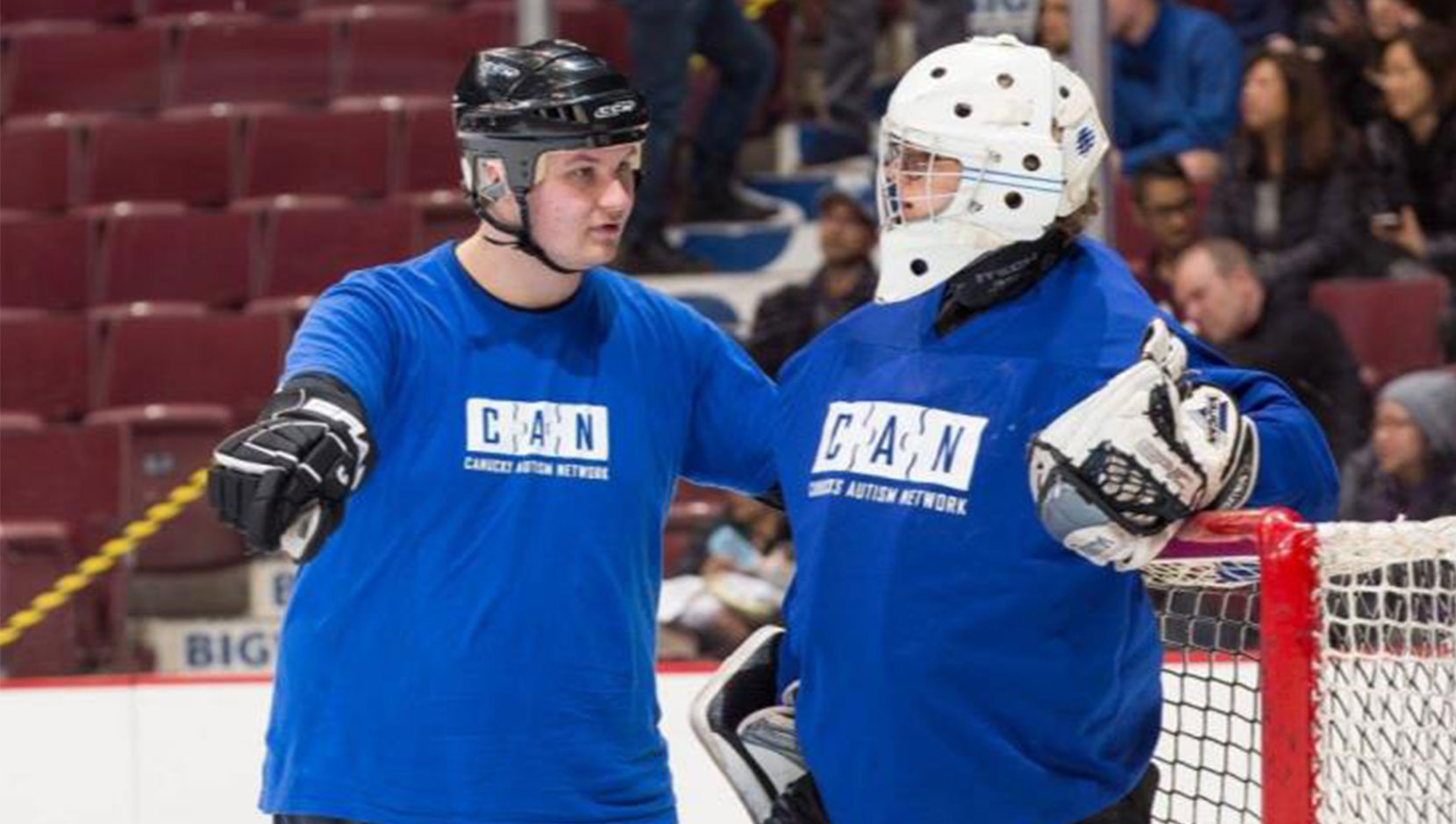Former Goalie Finds Calling Coaching Autistic Youth


Having first joined Canucks Autism Network (CAN) nearly 10 years ago, Sylvain Formo has progressed from participant to volunteer to staff at the Canucks Autism Network.
As a volunteer in their hockey program, Sylvain used his experience as both an individual with autism and a former goalie to go above and beyond in mentoring CAN’s young athletes.
Recognizing the need for his unique background and expertise, CAN innovated a new position within the program and hired Sylvain as their goalie coach:
“Coaching the kids, I see myself when I was their age. Growing up with autism, I remember feeling that anxiety. Goaltending is high stress on its own. But because I have experienced those breaking points first-hand, I know to go at their pace.”
Founded in 2008 by Vancouver Canucks Co-owners Paolo and Clara Aquilini, CAN provides year-round sports and recreation programs for individuals and families living with autism, while raising awareness and providing training in communities across British Columbia.
After participating in CAN’s adapted hockey program, Sylvain approached the organization with a desire to give back. Volunteering in the program, he saw an opportunity to create the same positive experiences for children and youth with autism that he benefited from.
As a former goalie, Sylvain knew that he had a unique insight into the needs of the program. Unlike other volunteers and coaches within the program, Sylvain understood first-hand what it was like to live with the anxiety and apprehension often associated with autism – let alone the pressure that only a goalie understands.
As illustrated by Sylvain,
“It takes a special person to willingly stand in front of hockey pucks. And as goalie, you can’t help but feel like each goal is entirely your fault.”
But despite his desire to share his knowledge and insight, Sylvain arrived nervous at each practice, unsure of his ability to lead.
The staff recognized Sylvain’s apprehension and slowly eased him into the responsibilities of being a volunteer. Mentored by the program’s on-site coordinator, Megan Mereniuk, he was encouraged to start by simply leading group stretches at the start of each practice. Gradually, Megan helped Sylvain progress into facilitating more drills and activities, while teaching him the basics of coaching children with autism.
Sylvain’s confidence grew. Having established a trusting relationship with his supervisor, he approached Megan with the idea of preparing a separate lesson plan for the team’s goalie.
At home, Sylvain spent hours researching lesson plans on Hockey Canada’s website. Before long, he had developed individualized drills and targets that were even adapted to incorporate the goalie’s love for Mario and Nintendo.
“That was the turning point for me,”
recalls Sylvain. “I’m a planner and I have to feel prepared before I do anything. If I don’t expect something coming, it brings up a lot of anxiety.”
Beyond his off-ice preparations, Sylvain began applying his self-awareness about autism and anxiety to inform his interactions with the participants.
For example, after noticing that one of the goalies loved books, Sylvain made sure that he had an opportunity to read before hitting the ice to calm his nerves.
“He understands the kids like no one else does,” explained Megan.
“Often times, Sylvain is the first one to recognize when a participant is becoming anxious or may need to some extra attention.”
It became clear that his acute awareness and expertise with the program’s goalies was becoming indispensably valuable.
Recognizing that Sylvain was in a position to provide unique value to the team, CAN created the role of goalie coach and immediately hired him for the job.
With endless humility, Sylvain credits CAN’s staff for recognizing his abilities, but being patient with him when he began as a volunteer. It is the same approach he now takes to coaching CAN’s young athletes.
When asked if he would be interested in offering his skills for other CAN programs, like swim, soccer or basketball, Sylvain replied without skipping a beat:
“Absolutely. Working at CAN is when I feel most like me. The best part is that I get to help other kids with autism feel like their best selves too.”
